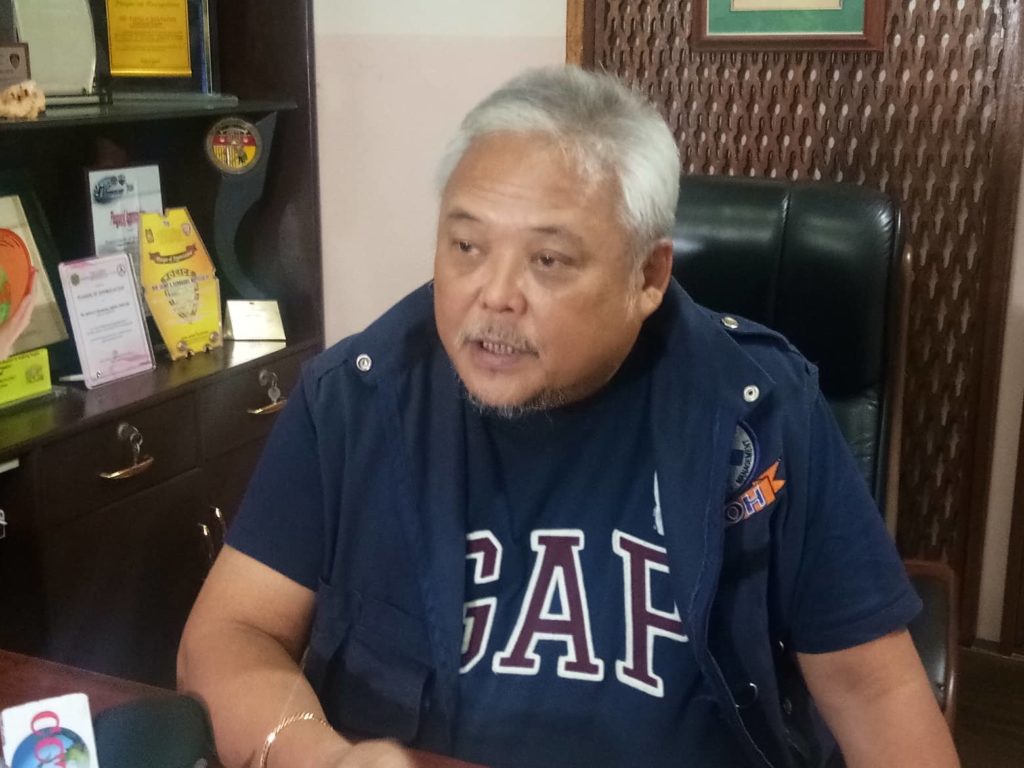PUMs, PUIs urged to follow health department’s guidelines, protocols

Dr. Jaime Bernadas is encouraging persons under monitoring to comply with the guidelines and protocols of their home quarantine. | Futch Anthony Inso
CEBU CITY, Philippines — The Department of Health in Central Visayas (DOH-7) is appealing to persons under monitoring (PUMs) and persons under investigation (PUIs) to cooperate with the protocol and guidelines that was issued by the department in handling persons with history of travel from China or in contact with a person that has been positive with the Coronavirus Disease-2019 (COVID-19).
This after the agency has received several complaints from Filipino returnees from Taiwan, who are currently quarantined in a facility in Busay, Cebu City.
On Tuesday, February 11, 2020, around 78 Filipino returnees arrived in the Mactan-Cebu International Airport (MCIA) from Taiwan, a day after the country was included in the temporary ban, as measure to prevent the possible spread of the virus.
Out of 78 passengers, around 30 of them were subjected to a 14-day quarantine in a holding facility, while the rest have returned to their houses to undergo home quarantine.
Those who are placed in a holding facility, Bernadas said were not residents in Cebu.
“In situations like this, that would be a luxury for us. We have to make do with at least individual beds, naa tay mga delienation. Naa tay bantay, unya naa tay siyempre mga nurses nato nga nagmonitor, and it should be a comfortable place for them,” said Dr. Jaime Bernadas, Department of Health in Central Visayas chief.
(In situations like this, that would be a luxury for us. We have to make do with at least individual beds where we have delineation. We have persons who can guard them and nurses to monitor them. It should be a comfortable place for them.)
He said that all 78 passengers from Taiwan were asymptomatic or had not manifested symptoms of the virus.
Read more: Province shocked by ‘demanding’ passengers from Taiwan
Bernadas said that those PUMs who were placed in a holding facility, would also be provided with their maintenance medication and other needs.
He also said that he would look into the reports that the facility had no water supply which was one of the complaints of the PUMs.
Bernadas also clarified that the ambulances, which transported PUMs to the facility from the airport, had been regularly disinfected.
Aside from this, Bernadas also encouraged local government units to regularly monitor PUMs, who were being subjected to home quarantine.
PUM caught roaming in barangay
Yesterday, Dr. Agnes Realiza, Lapu-Lapu City Health Officer, told CDN digital that one of their PUMs was found roaming around in the barangay where she resided, even if she was subjected to home quarantine
Realiza said that a barangay worker caught the PUM who immediatley asked the assistance of the police.
“The PUM came from Taiwan, and she left her house to buy food outside. The PUM only told us that she didn’t know that she is prohibited to go out,” Realiza said.
Bernadas said that PUMs were informed about the protocols and procedures from the airport, until they had been placed to home quarantine.
“Imposible na nga wala sila kabalo kay pahibaw-on na sila daan sa protocols,” he said.
(It’s impossible that they did not know [protocols and procedures] because they were already informed beforehand about the protocol.)
Based on DOH-7’s monitoring as of yesterday, Central Visayas has already 27 PUIs and 151 PUMs./dbs
Disclaimer: The comments uploaded on this site do not necessarily represent or reflect the views of management and owner of Cebudailynews. We reserve the right to exclude comments that we deem to be inconsistent with our editorial standards.
